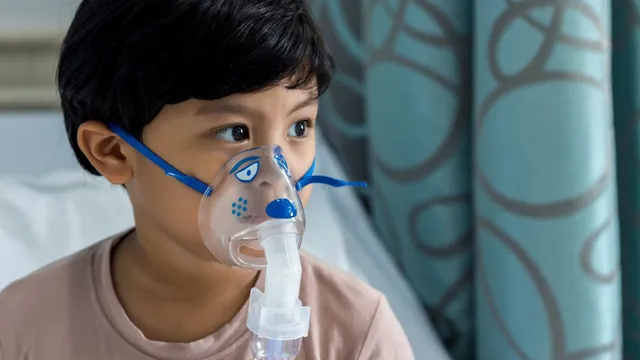- By Iram Hussain
- Wed, 07 May 2025 05:52 PM (IST)
- Source:JND
Allergic asthma is a type of asthma which is triggered by allergens (substances that cause allergic reactions). It is a prevalent type of asthma triggered by allergens such as pollen, dust mites, mould and pet dander. It’s one of the most common types of asthma and involves inflammation and narrowing of the airways in response to allergens. When these allergens enter the airways, they cause inflammation and narrowing, leading to asthma symptoms like wheezing, coughing and shortness of breath.
The immune system overreacts to the allergen, releasing chemicals that cause airway constriction. Identifying and avoiding triggers along with medication and immunotherapy can help manage allergic asthma and alleviate symptoms. Proper diagnosis and treatment are essential for effective management.
In a conversation with Jagran English, Dr. Azmat Karim, Consultant, Pulmonary Critical Care & Sleep Medicine, Fortis Escorts, Okhla Road, New Delhi explained about allergic asthma.
Causes And Triggers
Allergic asthma is caused by an overreaction of the immune system to allergens. Common triggers include
- Pollen
- Dust mites
- Pet dander (skin flakes, saliva, urine)
- Mould spores
- Cockroach droppings
- Smoke, pollution or strong odour
When exposed, the immune system releases histamines and other chemicals that inflame the airways, causing asthma symptoms.
Symptoms
Symptoms of allergic asthma can vary in intensity and may include:
- Wheezing
- Shortness of breath
- Chest tightness or pain
- Coughing, especially at night or early morning
- Increased mucus production
- Fatigue during or after flare-ups
Diagnosis
- Medical history and physical exam
- Allergy testing (skin or blood tests)
- Lung function tests (like spirometry or peak flow)
Treatment Options
1. Allergen Avoidance
- Use HEPA filters
- Wash bedding regularly
- Keep pets out of bedrooms
- Avoid outdoor activities during high pollen seasons
2. Medications
- Quick-relief (rescue) inhalers
- Long-term control medications, e.g., inhaled corticosteroids, leukotriene modifiers
- Biologics for severe allergic asthma (e.g., omalizumab)
- Antiallergy medications: antihistamines, decongestants
3. Immunotherapy (Allergy Shots or Tablets)
- Helps desensitise your immune system to allergens over time
4. Lifestyle Management
- Maintain a healthy weight
- Avoid smoking
- Manage stress which can worsen symptoms
ALSO READ: Asthma First Aid: 6 Things Everyone Should Know According To Doctor

